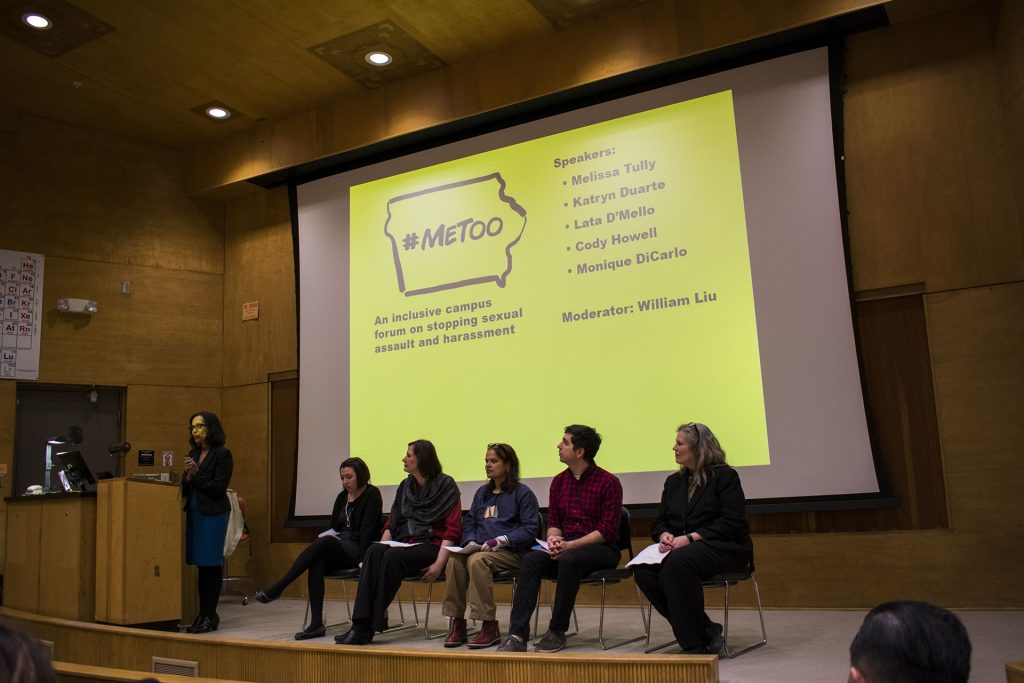A Thursday night event took sexual-assault prevention into the digital realm.
A panel of UI faculty and rape-prevention specialists joined together to discuss effective ways to combat sexual assault and the effects of online activism in a forum called “#MeToo: An Inclusive Campus Forum on Stopping Sexual Assault and Harassment.”
The discussion took place in the Main Library’s Shambaugh Auditorium and focused on a number of issues relating to the #MeToo movement and sexual assault. Among these issues were how different ways of online activism intersect and how sexual violence isn’t always at a personal level.
After the primary discussion, speakers took questions from the audience. A few audience members talked about their own experiences with sexual assault and asked such questions as whether sexual education should be taught before middle school and how consent from non-American cultures differed from the general American standpoint.
One of the panelists, UI Sexual Misconduct Response Coordinator Monique DiCarlo, also presented a detailed flowchart relating to how the university handles such cases. She talked about the number of instances of alleged sexual misconduct that her office viewed in 2016 and how various instances could lead to different outcomes for the accused.
RELATED: Us, too
Melissa Tully, a UI assistant professor of journalism, talked about how online activism could potentially lead to individuals embracing activist positions in real life, something she referred to as “gateway activism.”
The #MeToo movement has succeeded in spreading awareness about sexual assault, she noted.
“It’s been successful as to how it’s brought these issues to light,” she said. “There’s been a lot of open, honest, public conversation that probably wouldn’t have happened without the social-media side of it.”
Tully was one of the journalism faculty members who organized the event.
“We were talking about having an event in which we could bring together different community stakeholders to talk about some of these issues,” Tully said. “We were trying to bring together different voices and to get into the complexity of some of these issues.”
Panelist Cody Howell, a violence prevention specialist at the Women’s Resource & Action Center, talked about how men are affected by sexual misconduct and how they shouldn’t be afraid of speaking out when assaulted.
Howell said education about consent is a good way to prevent sexual assault. “A lot of it comes down to giving more information about consent … when somebody doesn’t want to consent to anything, they shouldn’t feel like that’s on them. They should feel that it’s OK to accept rejection,” he said.
Lata D’Mello, the assistant director of the Monsoon United Asian Women of Iowa sexual assault prevention group, noted a culture gap in reporting sexual assault.
Her group specializes in aiding victims of domestic abuse in Asian communities, and many of the people they service are unfamiliar with American customs. She said the culture gap made it possible for these individuals not to understand their rights or what constituted sexual assault.
D’Mello said the #MeToo movement “should make people more aware of what boundaries and respect mean … in a way that is healthy.”



